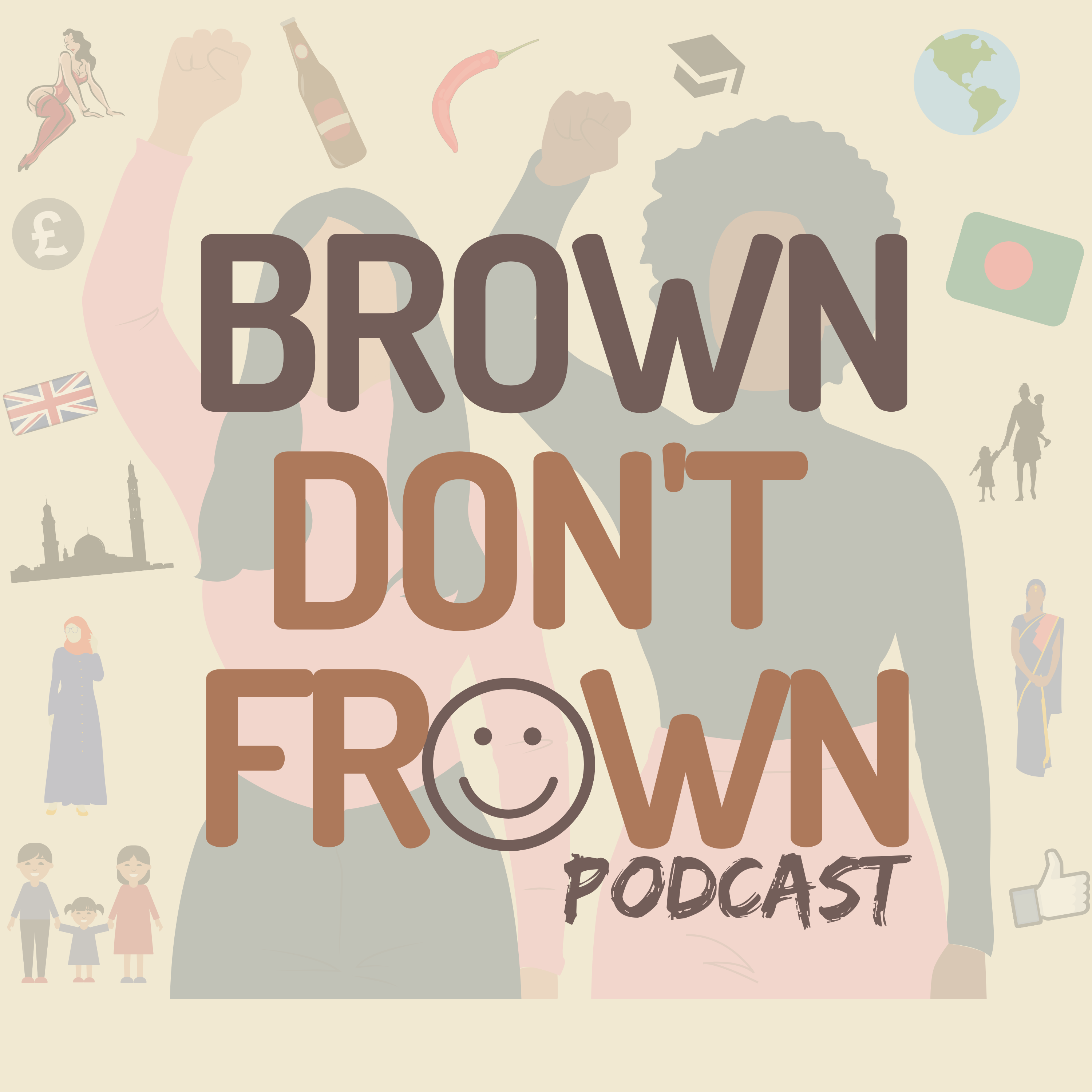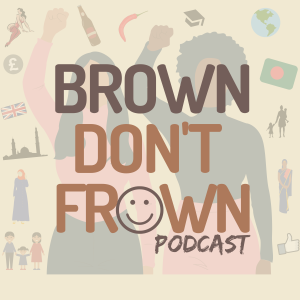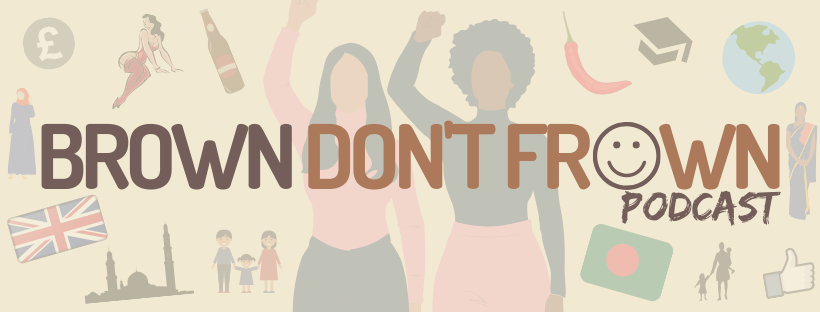
Brown Don't Frown was borne out of a personal journey with womanhood. As a British Bangladeshi, navigating mainstream Feminism often felt exclusionary to me because it didn’t seem to value the experiences or views which shaped my grandmother’s, aunts’, mother’s or friends’ lives. Through this podcast, we seek to build a more inclusive discourse, which breaks down presumptions about different cultures, and shines a positive light on the stories of underrepresented women. Featuring new guest(s) from different walks of life in each episode, Brown Don’t Frown seeks to engage ordinary women and facilitate openness towards entirely new perspectives. It hopes to spark honest and meaningful conversations about intersectional feminist themes in contemporary society with the acknowledgement that our views are shaped by our cultural, racial, religious, social and political experiences. Whether it's discussing society's preconceptions about the Hijab with a British-born Jamaican Muslim woman or examining the impact of gendered expectations on our ability to grieve on our own terms, we hope listeners finish each episode feeling more rounded than they did before. Follow us on: Instagram: https://www.instagram.com/browndontfrownpodcast/ Twitter: https://twitter.com/bdfpodcast?lang=en Facebook: https://www.facebook.com/browndontfrownpodcast LinkedIn: https://www.linkedin.com/company/browndontfrownpodcast
Episodes

Sunday May 17, 2020
Sunday May 17, 2020
Is discussing football at work sexist? Should wolf-whistling be illegal?
On today’s episode Lawyer Ellie and I explore ‘Political Correctness' and its interrelationship with Feminism. We posit Feminism as a means of exercising free choice, having opportunity, and - respecting others - a core tenet of political correctness. We talk about the historical significance of political correctness, how it shapes discourse today and whether the current interpretation of it is sustainable in the long-term.
We share our own experiences to help illustrate how at one end, political correctness can be used to manipulate conversation, exacerbate hypersensitivities and polarise views, while at the other end, it can help to build tolerance and inclusivity. Ultimately, we realise that it is about compromise, decency and common sense.

No comments yet. Be the first to say something!